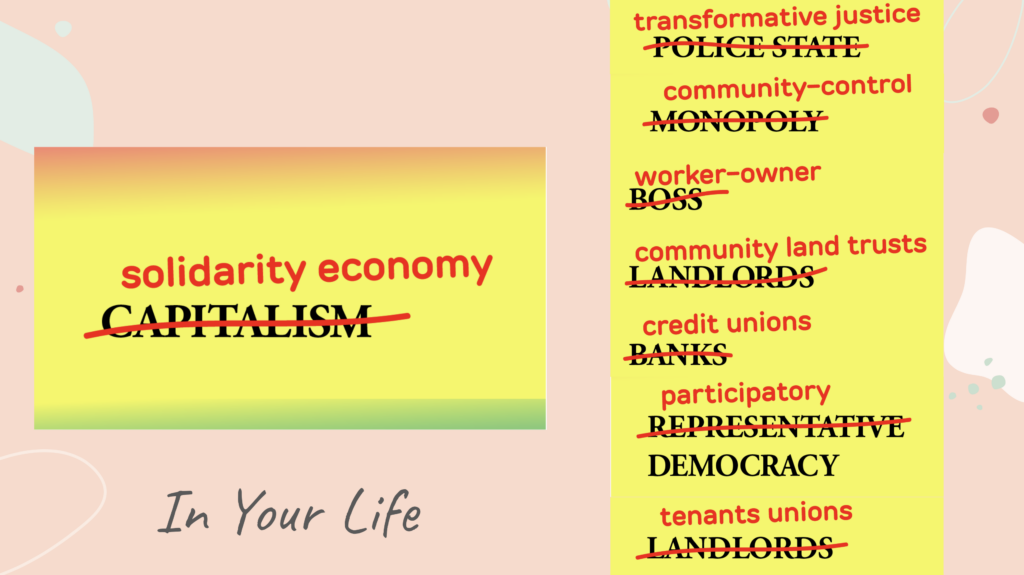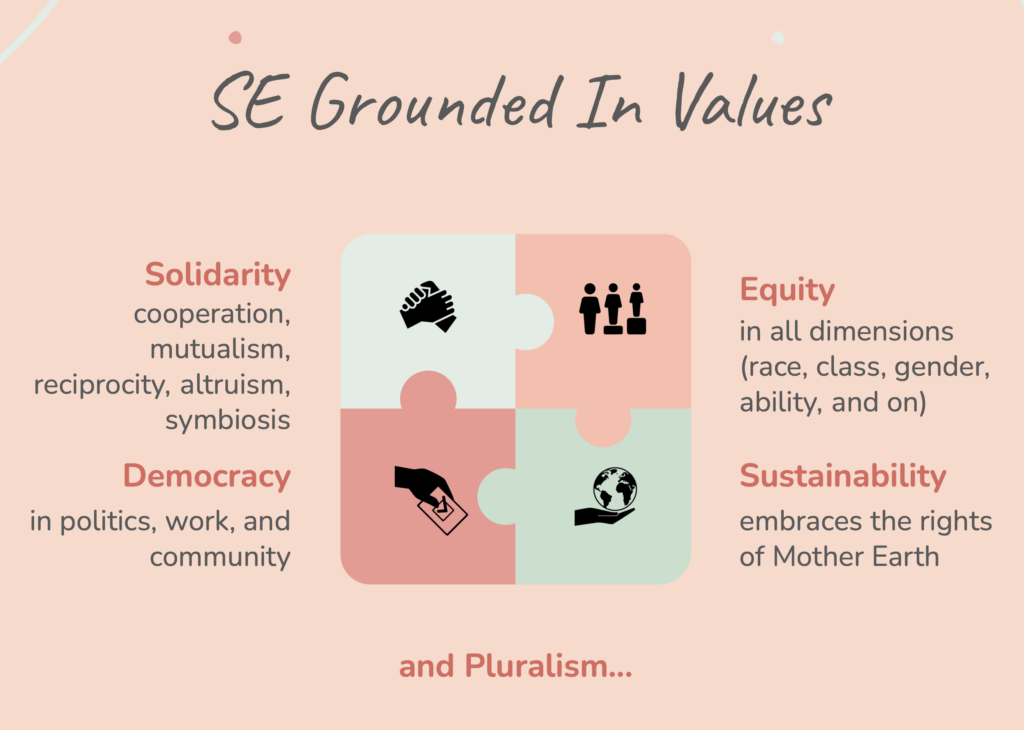There is a historic opening to create and push for a new framework for social and economic development – one that puts people and planet before private profits and power.
In the midst of growing inequality and corporate power, government cutbacks, privatization and de-regulation, there is a quiet hum of people building economic alternatives grounded in principles of social solidarity, cooperation, egalitarianism, sustainability, and economic democracy.
 We need not build the solidarity economy from scratch.
We need not build the solidarity economy from scratch.
Many features of existing economies are likely ‘keepers,’ for example: social security, environmental protections, minimum wage and labor regulations.
Other elements of the solidarity economy could be characterized as ‘economic alternatives’ such as cooperatives, land trusts, local currencies, community supported agriculture, social investment funds, participatory budgeting, eco-industrialization, and the commons movement.
Taken together, they offer stepping stones toward a new way of organizing our economy that is being called the solidarity economy.
While some elements of the solidarity economy have existed for hundreds of years, the framework is very young and is still in the process of evolving and being defined. There’s a growing global movement to advance it as an alternative to the failed model of neoliberal corporate-dominated globalization.
While the U.S. has many solidarity economy practices and institutions, the unifying framework of the solidarity economy is less well known. SEN works to connect the elements of the solidarity economy conceptually as well as practically.

What is the Solidarity Economy?
An alternative framework for economic development grounded in practice and the following principles:
- Solidarity and cooperation
- Equity in all dimensions (race, ethnicity, gender, class, etc.)
- Social and economic democracy
- Sustainability
- Pluralism (not a one-size-fits-all approach)
- Puts people and planet first
Solidarity economy (SE) is about systemic transformation.
We understand the economy as being embedded in the global natural and social eco-system, shaped by the rules and institutions of governance and including all sectors of the economy.
The solidarity economy already exists in practice. Examples are shown in the interactive Prezi below.
